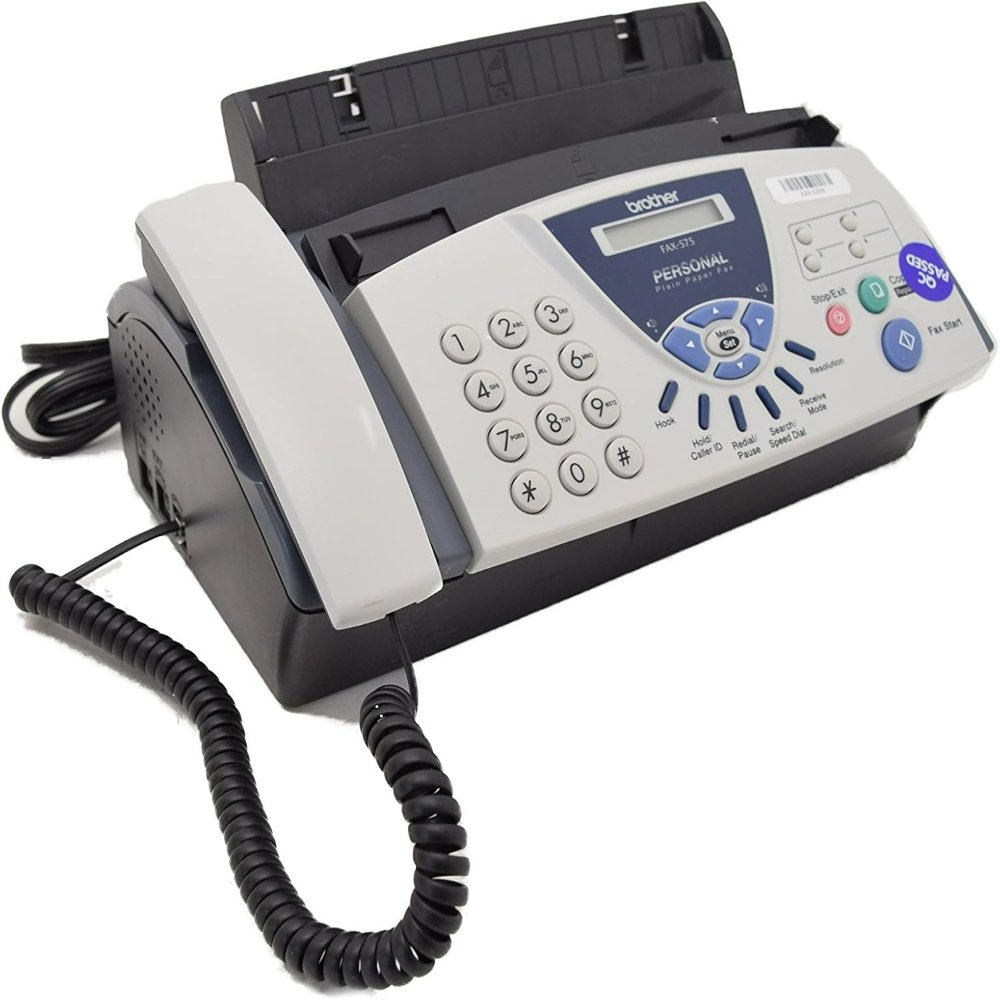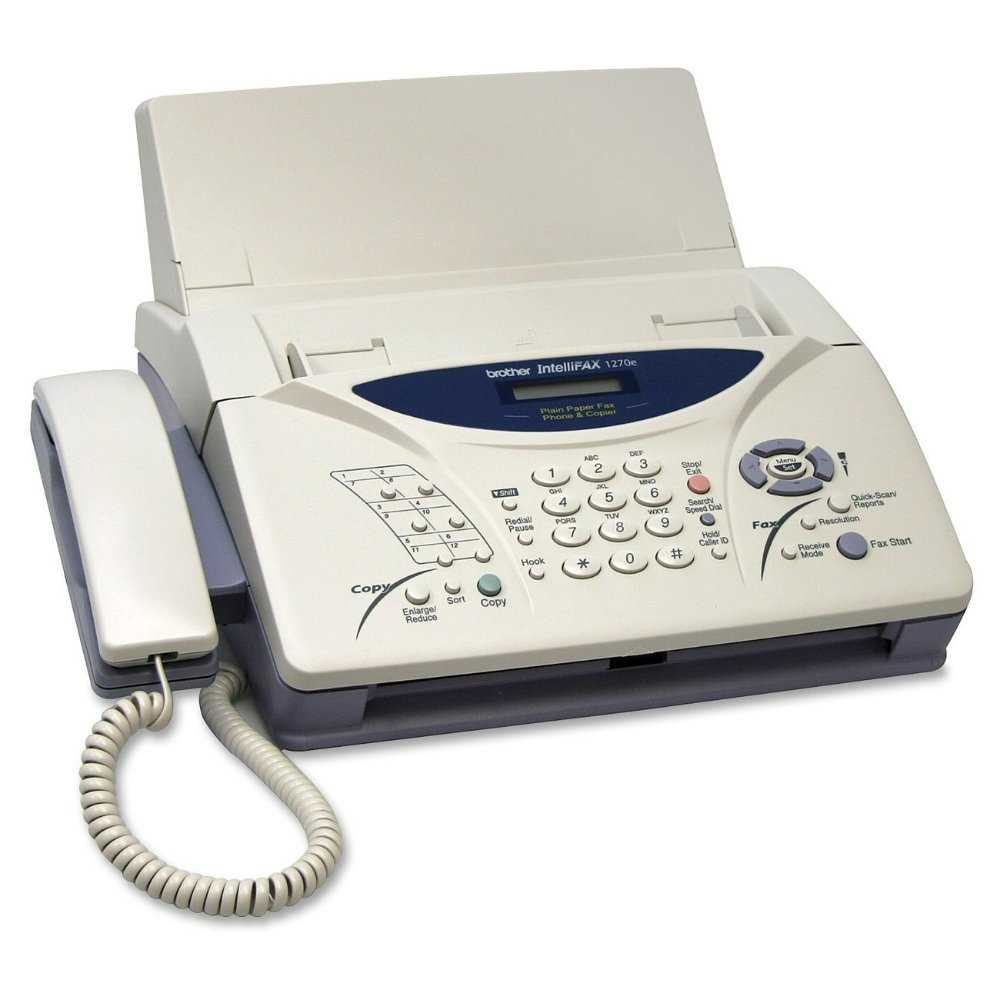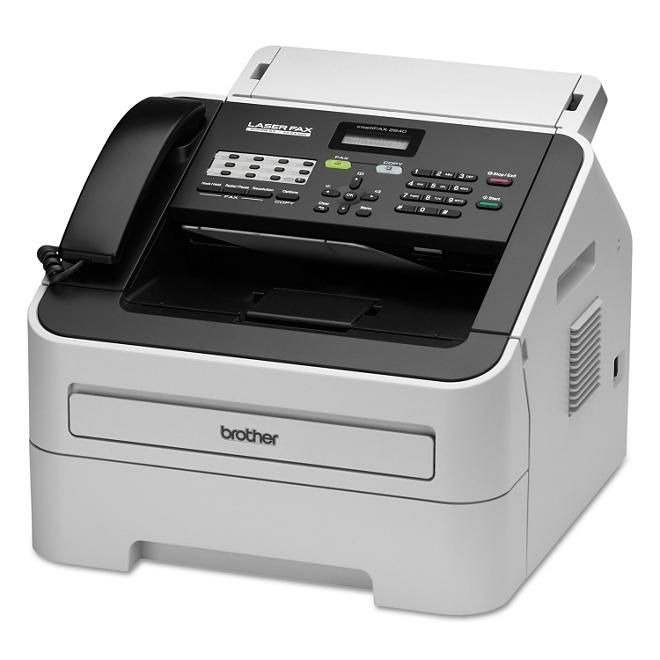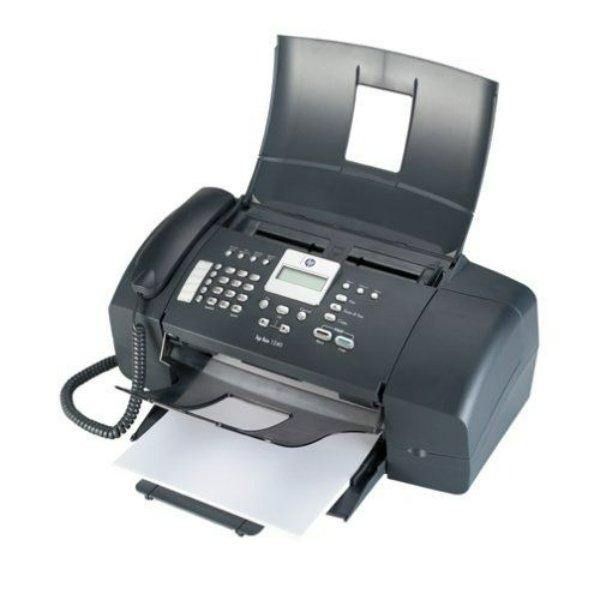A Brief History of the Fax Machine
To appreciate how and ‘what is a fax machine used for’ today, it’s essential to understand its origins. The fax machine, once a staple of communication, has a storied past that reveals much about its durability and adaptability.
The Invention and Early Adoption
The fax machine was invented in 1843 by Alexander Bain, a Scottish mechanic and inventor. Early adoption was slow, as the technology was complex and expensive. Nonetheless, it represented a remarkable capability to transmit images and text over long distances through telegraph lines, which was groundbreaking at the time. These early machines laid the groundwork for the devices we recognize today.
By the late 19th and early 20th centuries, fax technology improved, becoming more practical for government and business use. Despite the emergence of telephone and radio, the fax machine carved out a critical role, especially when reliable document transmission was necessary.
The Golden Era of Fax Communication
The ‘golden era’ of fax communication began in the 1970s and extended into the early 2000s. During this period, the fax machine became ubiquitous in offices worldwide. It was prized for its real-time document-sharing capabilities, which were invaluable before the advent of email and digital communication. Corporations and small businesses alike relied on the fax to send contracts, proposals, and other critical business documents quickly and securely.
This era saw the fax machine at the center of business operations, championing speed and reliability in an age before the internet revolutionized communication. Even with the rise of digital methods, ‘what is a fax machine used for’ remained a common question, as its unique benefits maintained its relevance in certain sectors. The use of fax machines during this period underscored their importance in professional communication.

Understanding Fax Machines in the Digital Age
In the digital age, fax machines have evolved beyond their original design. Yet, the question remains: ‘what is a fax machine used for’ now, when email and instant messaging seem ubiquitous? The answer lies in their adaptability and the niche they fill in secure, legally-recognized communication.
How Fax Machines Work Today
Modern fax machines have embraced digital technology while maintaining their core function. Today’s devices convert scanned paper documents into a digital format. They then transmit this data over telephone lines or the internet to the recipient’s fax machine. There, the data is converted back into a physical document.
Fax machines today often have integrated features such as email-to-fax, which allows users to send and receive faxes directly from their email accounts. This blend of old and new technology ensures that fax machines continue to be relevant for certain uses, providing a trusted method for sending important documents.
The Evolution of Fax Technology
Fax technology has not remained stagnant. Innovations have led to what some call ‘fax 2.0,’ a modern iteration that integrates with today’s digital workflows. The evolution includes transitioning from traditional machines to online fax services, which simulate the faxing process without the need for physical devices.
This shift has been driven by the need for more flexible, cost-effective solutions that align with remote work and mobile business practices. The transition to virtual faxing has enabled users to send and receive faxes from anywhere, using any device connected to the internet, such as smartphones or laptops. As a consequence, faxing has become more accessible and aligned with contemporary technological standards.
Current Roles of Fax Machines in Business
Despite the digital revolution, fax machines still have their place in today’s business world. They serve as a reliable and secure method for sending important documents, particularly in scenarios where other forms of digital communication may not suffice. Let’s explore the role fax machines play in secure document transmission and international communications.
Secure Document Transmission
In business, the security of sensitive information is paramount. Fax machines excel in this capacity, offering a level of security that e-mail and other online platforms struggle to match. When asking ‘what is a fax machine used for,’ consider industries like law or finance, where the transmission of confidential contracts and agreements must be both secure and reliable. The use of traditional fax machines involves direct, point-to-point communication which is less prone to interception than emails which pass through multiple servers.
International Communications and Legal Validity
Businesses operating on an international scale often face challenges with the legal recognition of digital signatures and e-documents. This is where the fax machine’s role is critical. The question ‘what is a fax machine used for’ extends to its ability to provide legally binding documents quickly across borders. The inherent validity of a fax transmission, recognized by courts and international law, provides a layer of assurance for international business transactions that digital communications have yet to universally achieve.
Fax machines continue to support business operations by ensuring secure and legally recognized document exchange, proving their ongoing relevance in a technologically advanced landscape.

Healthcare and Fax Machines
When exploring modern applications for the fax machine, healthcare emerges as a primary sector. Here’s why fax machines are vital in this field.
Patient Records and Privacy Concerns
In the healthcare industry, patient data privacy is critical. ‘What is a fax machine used for’ in this context is safeguarding sensitive information. Fax machines offer a secure method for transmitting patient records, with less vulnerability to cyber-attacks compared to electronic mail. Healthcare providers rely on fax technology to comply with privacy regulations like HIPAA, ensuring patient information remains confidential during transmission.
Emergency Response Communication
During emergencies, reliable communication is essential. Fax machines provide a dependable way to send critical medical information swiftly. This is crucial when seconds count, such as in the arrangement of life-saving procedures or the coordination of care among multiple providers. The utility of fax machines in emergency scenarios highlights their continued relevance, even in a digitized world.
Government and Legal Sectors’ Reliance on Faxing
Despite the digital shift, the question ‘what is a fax machine used for’ still arises in governmental and legal settings. Here, fax machines retain pivotal roles due to their secure and formal nature of exchanging official documents and maintaining records.
Official Document Exchange
Governmental and legal entities frequently exchange documents that require a high level of security and authenticity. Email, while convenient, may not meet the stringent standards required for official communications. Fax machines, on the other hand, offer a direct and less vulnerable method for transmitting documents. From policy drafts to legal notices, the fax ensures that sensitive information is shared with the intended recipient without undue exposure.
Record Keeping and Archival Purposes
Long-term record keeping is fundamental in government and legal operations. Documentation like legislative records, court decisions, and official correspondence must be preserved in unalterable formats. Fax machines support this need by producing physical copies that are tangible, reliable, and suitable for archiving. In our digital world, a faxed document still holds significant evidentiary value, confirming ‘what is a fax machine used for’ in the context of legal and historical archiving.

Fax Machines in Financial Institutions
The relevance of the traditional fax machine within financial institutions cannot be overstated, particularly when discussing security and compliance.
Security in Financial Document Transmission
In the financial sector, the integrity of document transmission is a top priority. ‘What is a fax machine used for’ here particularly stands out due to its ability to provide secure transfer of sensitive information. Financial organizations rely on fax machines for their direct and point-to-point communication features. These features ensure that documents such as bank statements, trade confirmations, and loan applications are less vulnerable to digital threats like hacking or phishing. Fax technology offers an encrypted line of transmission, viewed as more secure than email, reducing the risk of unauthorized access.
Compliance with Industry Regulations
The fax machine’s importance in upholding compliance with industry regulations in the finance world is substantial. ‘What is a fax machine used for’ in this regulatory context is its role in meeting strict standards set by financial authorities. For example, institutions must adhere to regulations such as the Sarbanes-Oxley Act or the Gramm-Leach-Bliley Act, which mandate the secure handling of financial information. Faxes provide a verifiable transmission log and hard copy trail that are crucial for audit purposes and regulatory compliance. This ensures that financial entities can demonstrate adherence to legal requirements efficiently and effectively, making fax machines an indispensable tool in this highly-regulated industry.
Integration with Modern Technology
As technology advances, fax machines are adapting to stay relevant. Here’s how they integrate with today’s tech landscape.
Cloud Services and Virtual Faxing
Cloud services have revolutionized the fax industry by introducing virtual faxing. ‘What is a fax machine used for’ in this era encompasses accessing faxing services without needing a physical machine. Virtual fax services store documents in the cloud, allowing you to send and receive faxes via the internet. This means you can fax from any device with an internet connection, increasing convenience and reducing costs associated with traditional fax machines.
The adaptability of fax to cloud services ensures the secure transmission of documents. This is a boon for businesses navigating the digital world while adhering to compliance standards. Virtual faxing has thus become a popular option for industries that prioritize document security and wish to streamline operations.
Mobile Faxing Solutions
In today’s mobile-driven environment, the ability to fax on-the-go is vital. The query ‘what is a fax machine used for’ now includes mobile faxing solutions. These allow users to send and receive faxes directly from smartphones or tablets. With dedicated apps, this form of faxing provides the same level of security and legality as traditional faxing.
Mobile faxing solutions are particularly useful for professionals who travel or work remotely. They offer the flexibility to handle important documents promptly, no matter the location. This reinforces the fax machine’s role as a dependable tool for secure communication, even as we shift towards a mobile-centric culture.
